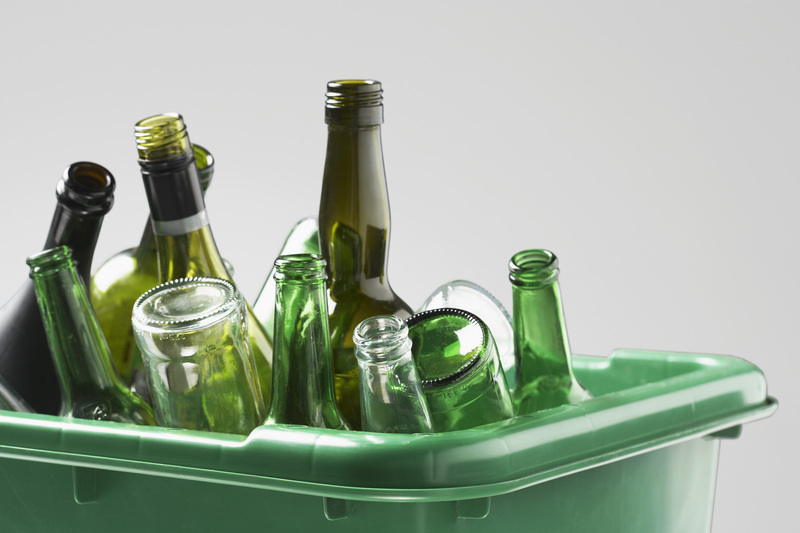Turning PPE Waste Management Into a Responsible Daily Habit
The global COVID-19 pandemic introduced the world to new essentials: masks, gloves, face shields, and other personal protective equipment (PPE). While these items offered a critical shield against infection, they generated an unintended and urgent environmental crisis: excessive PPE waste. Now, as we continue to prioritize safety, it becomes paramount to address how to make PPE waste management a responsible daily habit for everyone--individuals, organizations, and communities alike.
Why PPE Waste Management Matters
PPE, designed for single use and made from non-biodegradable materials, constitutes a new wave of plastic pollution. Before the pandemic, disposable medical items were primarily confined to healthcare settings. Today, millions of people use masks and gloves daily, and improper disposal leads to:
- Environmental pollution--littered masks and gloves end up in streets, parks, and waterways, threatening wildlife and ecosystems.
- Health hazards--improperly discarded PPE may harbor pathogens and pose risks to sanitation workers and the public.
- Blockage of sewage systems--clogged drains caused by PPE lead to urban flooding and infrastructure damage.
Understanding the stakes underscores the need to manage PPE waste responsibly every day.

The Everyday PPE Waste Challenge
Turning PPE waste disposal into a responsible daily routine requires a collective shift in habits, awareness, and available disposal options:
- Large volume of waste: Billions of disposable masks and gloves are used globally each month.
- Lack of clear disposal guidelines: Many people remain unaware of proper PPE disposal protocols.
- Infrastructural gaps: Few public places offer dedicated PPE bins for safe collection and processing.
Types of PPE Waste at Home and Work
- Masks: Surgical masks, N95 respirators, cloth masks with filters.
- Gloves: Disposable latex, nitrile, vinyl gloves.
- Face shields & goggles: Often reused, but damaged items require disposal.
- Protective gowns and aprons: Common in healthcare, sometimes used in retail and hospitality.
Understanding these PPE waste types helps tailor management strategies for households, businesses, and large organizations.
How to Make PPE Waste Management a Daily Responsible Habit
Establishing a routine for responsible PPE waste disposal is easier than many realize. By adopting the following steps, you can incorporate sustainable PPE handling into your everyday life:
1. Educate Yourself and Your Community
- Know the guidelines: Local authorities and health agencies often provide specific PPE disposal instructions. Familiarize yourself with these details.
- Spread awareness: Inform friends, family, neighbors, and coworkers about the importance of responsible PPE management.
- Promote visual reminders: Put up signs, stickers, or infographics in homes, offices, and public spaces.
2. Use Reusable PPE When Safe
- Opt for reusable masks: Use high-quality cloth masks with filters whenever possible and follow regular cleaning protocols.
- Minimize single-use items: Reserve disposable PPE for higher-risk situations, such as hospitals or crowded public spaces.
- Properly care for reusable items: Wash masks, face shields, and goggles after each use.
This approach not only cuts down on waste but also makes PPE waste disposal less frequent and more manageable.
3. Set Up Dedicated PPE Disposal Systems
- At home: Have a sealed, labeled bin just for used PPE items. Empty regularly to avoid overflow and contamination.
- At work or school: Request dedicated PPE bins in high-traffic areas like entrances and restrooms.
- Public spaces: Advocate for and use PPE-specific disposal containers provided by local authorities or community organizations.
4. Practice Safe PPE Handling Before Disposal
- Do not litter: Never throw masks or gloves on the ground or in public spaces.
- Remove PPE properly: Avoid touching the front of masks or gloves while removing them. Discard immediately after use.
- Sanitize hands: Always wash or sanitize your hands after handling used PPE.
5. Dispose of PPE Correctly
- Seal used PPE: Place items in a plastic or biodegradable bag, tie securely, and discard in the appropriate bin.
- Do not recycle disposable PPE: Most masks and gloves are not recyclable and can contaminate recycling streams.
- Avoid flushing: Never flush masks or gloves down the toilet as this contributes to sewer clogs and pollution.
6. Advocate for Better Infrastructure
- Request more PPE bins: Contact local authorities or businesses to provide dedicated waste containers.
- Support recycling innovations: Encourage programs that collect and process PPE waste into usable materials, like road surfacing or construction products.
Innovations and Strategies in PPE Waste Management
The rise in PPE pollution globally has driven innovation and change in waste management. Promising developments include:
- Specialized PPE recycling programs: Certain companies now collect used masks and gloves, break them down, and convert them into plastic lumber, construction materials, and even fuel.
- Biodegradable PPE: Researchers are developing masks and gloves made from plant-based polymers and natural fibers, reducing long-term impacts.
- Smart PPE bins: Sensor-equipped bins in airports, malls, and transit stations that track fill-level and notify sanitation staff, increasing collection efficiency.
Role of Government and Organizations
While personal responsibility is crucial, wider PPE waste management solutions come from policy intervention and collaborative action:
- Clear labeling: Mandatory disposal instructions on PPE packaging.
- Extended producer responsibility: Laws that require manufacturers to manage and reduce the end-of-life impact of PPE products.
- Public education campaigns: Ongoing awareness drives by health agencies, schools, and media outlets.
Building Community-Driven PPE Waste Management Habits
PPE waste cannot be tackled by individuals alone. Community-based initiatives drive lasting change by:
- Hosting PPE waste drives: Organize neighborhood or workplace collection events for safe disposal or recycling.
- Promoting clean-up campaigns: Volunteer groups can help pick up littered PPE in parks, waterways, and public areas.
- Including PPE waste in school curricula: Educating children and students on the impact and proper disposal fosters life-long habits.
- Engaging local businesses: Restaurants, gyms, and stores can provide bins and promote responsible use among customers.
Common Myths and Misconceptions About PPE Waste Disposal
- "Masks are recyclable if made of plastic." Most disposable masks contain a mix of materials and are not suited for standard recycling streams. Specialized programs are required.
- "Littered PPE breaks down quickly in nature." Disposable masks and gloves can last hundreds of years in the environment, harming animals and marine life.
- "Incinerating PPE is always safe." While incineration can handle infectious waste, poorly managed processes emit toxic fumes and greenhouse gases.
Challenges in Sustainable PPE Waste Management
Effective PPE waste handling faces a range of obstacles:
- Resource constraints: Not all regions have the infrastructure for safe collection and treatment.
- Cultural habits: In some areas, littering is normalized or PPE disposal is neglected due to lack of awareness.
- Economic factors: Cost of biodegradable PPE or specialized bins may limit access.
- Waste worker safety: Workers are at risk of exposure if waste is not properly separated and handled.
Despite these challenges, progress can be made through a blend of innovation, education, and shared responsibility.
The Environmental Impact of PPE Waste Mismanagement
PPE items, surprisingly lightweight, have a heavy toll:
- Marine pollution: Masks and gloves carried to rivers and seas choke, entangle, and poison marine life.
- Microplastics: As PPE items fragment, they contribute to the growing crisis of microplastic contamination in water, soil, and food chains.
- Greenhouse emissions: Improper burning or degradation releases carbon and toxins into the atmosphere.
- Landfill overflow: Bulky PPE clogs up valuable landfill space, accelerating the need for new waste sites.
Global Examples: Responsible PPE Waste Management in Action
- Singapore: Government-installed bins at bus stops and public areas strictly for masks and gloves. Violations incur fines and community service penalties.
- France: Implementation of a nationwide mask recycling initiative, with drop-off boxes in pharmacies and supermarkets.
- Canada: Partnerships between municipalities and recycling startups turn used PPE into construction materials.
These efforts showcase what's possible when communities and authorities collaborate for effective PPE waste solutions.
Quick Tips for Responsible Daily PPE Waste Practices
- Keep a bag for used PPE on the go: If no bins are available, safely store used items until you can dispose of them properly.
- Tear or cut masks before disposal: Prevent animals or others from retrieving and re-using discarded masks.
- Choose eco-friendlier options: Look for masks labeled biodegradable or made with plant-based materials.
- Engage others: Start small group pledges or challenges to reduce PPE litter in your neighborhood or office.

The Future of PPE Waste Management: Sustainability and Innovation
PPE will likely remain part of daily life for years to come. To ensure sustainable PPE waste management:
- Innovate material science: Demand for biodegradable, compostable PPE products continues to rise.
- Incentivize proper disposal: Rewards, deposit return schemes, or penalties can encourage compliance.
- Global collaboration: Shared research, harmonized guidelines, and funding for waste infrastructure will help combat the PPE pollution crisis.
Individuals, companies, and governments all have a role to play in minimizing PPE waste's impact and safeguarding our planet's future.
Conclusion: Make PPE Waste Management a Lifelong Commitment
The simple act of tossing a mask or glove in the right bin has far-reaching consequences for public health and the environment. By turning PPE waste management into a responsible daily habit, we can all contribute to a cleaner, safer, and more sustainable world. Whether at home, at work, or in public, let's pledge to set an example--one piece of PPE at a time.
Start today: Educate, act, advocate, and make responsible PPE waste disposal part of your everyday routine.